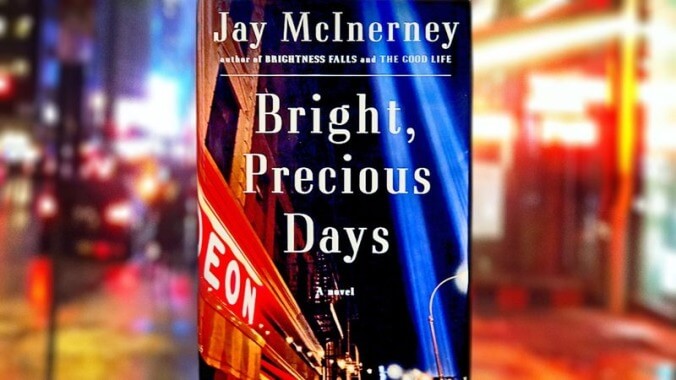Grappling with these issues are Russell, a well-respected but niche book publisher; his wife Corrine, whose one produced screenplay was acclaimed but received only a token release; and their various friends, protégés, and lovers, some of whom have forsaken their passions to orchestrate leveraged buyouts of companies they know nothing about. They all have reputations that risk teetering into oblivion; for everyone who acknowledges Russell’s ability to find and nurture new voices, there’s someone who thinks the role of the editor is woefully overrated in the publishing process. When he tries to argue otherwise, to accept some credit for the work he does, it comes off as the height of egoism, not too dissimilar from the skepticism that greets the financiers’ claims that they are the ones truly helping the economy.
This is very much a Manhattan book, specifically the Manhattan of the Bloomberg era. It is a city still reeling from 9/11, and one looking down the barrel of a financial collapse. (The time between these decade-bookending blows make up the bitterly ironic period of the title.) The characters don’t yet know that when Bright begins, but there’s a sense of precariousness in the air, and nostalgia runs high for the simpler, grittier Gotham of their youth. One woman reminisces in half-fond, half-sarcastic tones about the crime and junkies of the ’80s and adds, “But otherwise—fun.”
Bright doesn’t exactly mine uncharted territory, and the historical backdrop that comments on the action—the collapse of the old world, as seen by the 2008 financial crisis, the promise of what comes next, played by the 2008 election—feels more like grafted-on symbolism than organic or enlightening. (In fairness, the characters are so self-involved that even something like the carnage on Wall Street would only register as background noise.) The book’s biggest comic set piece—wherein a young indie-film actress gets coked up at a dinner party, blows a guy in the host’s bathroom, and then stabs their pet ferret to death with her high heels—is pretty heavy-handed in how it depicts its former wild ones as old fogies.
It may be that after reading Updike, Roth, and any number of other white guys from the era who get name-checked here, readers will have wearied of the tragedy of the middle-aged man and his waning libido (and especially of the hot young admirer who views bedding said man as an imperative, a cliché that appears but is not subverted here). But those who haven’t tired of it, or who still find enjoyment in the rich being articulate assholes to each other, will easily enjoy this, especially if they previously devoured Russell and Corrine’s adventures in their 30s and 40s. McInerney’s wit remains sharp, his powers of character observation astute, and he has more self-awareness than comes standard with the genre. In Bright, Manhattan wealth isn’t seen as glamorous so much as exhausting (preparing for yet another charity function, Corrine explains, “The money goes to, like, people with diseases and abused animals and stuff. It’s called a benefit.”), and McInerney sees, even if Russell and Corrine do not, how their self-proclaimed bohemian open-mindedness does not carry far. When Corrine tries to convince her husband to move to a neighborhood with more space, she argues, “More and more people like us are moving up there” to Harlem (emphasis added), and notes that even “Steve” Colbert lives in Jersey.
Just as importantly, her contentment and sex drive are given equal time with her husband’s, if not more attention. This might be a kind of sexism in and of itself—her desires need to be explained and have consequences, his go without saying (and without punishment)—but the result is at least a marriage that feels two-sided and complex.
It’s also an affectionate depiction. For all their flaws, Russell and Corrine do their best and maintain some ideals in their priorities, which keeps them from being insufferable. A frequent refrain of McInerney’s is the idea that Manhattan has two opposing teams: Art and love versus money and power. Bright, Precious Days works because, while McInerney has become his own kind of institution in the city, he remains stubbornly on the first team.

 Keep scrolling for more great stories.
Keep scrolling for more great stories.
